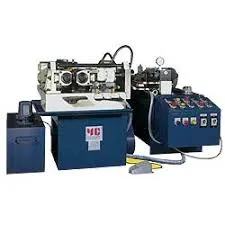
-
 Afrikaans
Afrikaans -
 Albanian
Albanian -
 Amharic
Amharic -
 Arabic
Arabic -
 Armenian
Armenian -
 Azerbaijani
Azerbaijani -
 Basque
Basque -
 Belarusian
Belarusian -
 Bengali
Bengali -
 Bosnian
Bosnian -
 Bulgarian
Bulgarian -
 Catalan
Catalan -
 Cebuano
Cebuano -
 Corsican
Corsican -
 Croatian
Croatian -
 Czech
Czech -
 Danish
Danish -
 Dutch
Dutch -
 English
English -
 Esperanto
Esperanto -
 Estonian
Estonian -
 Finnish
Finnish -
 French
French -
 Frisian
Frisian -
 Galician
Galician -
 Georgian
Georgian -
 German
German -
 Greek
Greek -
 Gujarati
Gujarati -
 Haitian Creole
Haitian Creole -
 hausa
hausa -
 hawaiian
hawaiian -
 Hebrew
Hebrew -
 Hindi
Hindi -
 Miao
Miao -
 Hungarian
Hungarian -
 Icelandic
Icelandic -
 igbo
igbo -
 Indonesian
Indonesian -
 irish
irish -
 Italian
Italian -
 Japanese
Japanese -
 Javanese
Javanese -
 Kannada
Kannada -
 kazakh
kazakh -
 Khmer
Khmer -
 Rwandese
Rwandese -
 Korean
Korean -
 Kurdish
Kurdish -
 Kyrgyz
Kyrgyz -
 Lao
Lao -
 Latin
Latin -
 Latvian
Latvian -
 Lithuanian
Lithuanian -
 Luxembourgish
Luxembourgish -
 Macedonian
Macedonian -
 Malgashi
Malgashi -
 Malay
Malay -
 Malayalam
Malayalam -
 Maltese
Maltese -
 Maori
Maori -
 Marathi
Marathi -
 Mongolian
Mongolian -
 Myanmar
Myanmar -
 Nepali
Nepali -
 Norwegian
Norwegian -
 Norwegian
Norwegian -
 Occitan
Occitan -
 Pashto
Pashto -
 Persian
Persian -
 Polish
Polish -
 Portuguese
Portuguese -
 Punjabi
Punjabi -
 Romanian
Romanian -
 Russian
Russian -
 Samoan
Samoan -
 Scottish Gaelic
Scottish Gaelic -
 Serbian
Serbian -
 Sesotho
Sesotho -
 Shona
Shona -
 Sindhi
Sindhi -
 Sinhala
Sinhala -
 Slovak
Slovak -
 Slovenian
Slovenian -
 Somali
Somali -
 Spanish
Spanish -
 Sundanese
Sundanese -
 Swahili
Swahili -
 Swedish
Swedish -
 Tagalog
Tagalog -
 Tajik
Tajik -
 Tamil
Tamil -
 Tatar
Tatar -
 Telugu
Telugu -
 Thai
Thai -
 Turkish
Turkish -
 Turkmen
Turkmen -
 Ukrainian
Ukrainian -
 Urdu
Urdu -
 Uighur
Uighur -
 Uzbek
Uzbek -
 Vietnamese
Vietnamese -
 Welsh
Welsh -
 Bantu
Bantu -
 Yiddish
Yiddish -
 Yoruba
Yoruba -
 Zulu
Zulu
Top Manufacturers of Thread Rolling Machinery for Precision Engineering Applications
The Evolution and Impact of Thread Rolling Equipment Manufacturers
Thread rolling is a critical manufacturing process employed to create external threads on fasteners and components. This technique utilizes a specialized machine that deforms material using rollers, producing high-strength threads without cutting. As the demand for quality fasteners in various industries rises, the role of thread rolling equipment manufacturers becomes increasingly significant. This article delves into the evolution, technologies, and impact of these manufacturers on the broader manufacturing landscape.
Historical Context
The history of thread rolling can be traced back to the late 19th century when industrialization began to demand more efficient methods for producing threaded fasteners. Initially, threads were cut into materials, which was both time-consuming and wasteful. The introduction of thread rolling machines marked a turning point, offering a more efficient method that produced stronger threads with superior surface finishes. Over the decades, advancements in technology have led to the development of highly specialized machines capable of producing threads of various shapes and sizes, catering to industries such as automotive, aerospace, and construction.
Innovations in Thread Rolling Equipment
Modern thread rolling equipment manufacturers invest heavily in research and development to create machines that not only meet the conventional needs of industries but also adapt to new materials and designs. One of the key innovations has been the shift towards automation. Automated thread rolling machines reduce human error, increase efficiency, and can produce complex threads at a much faster rate than conventional methods. With advancements in CNC (Computer Numerical Control) technology, manufacturers can program machines to produce intricate thread designs with precision.
Moreover, manufacturers are focusing on the sustainability aspect of thread rolling equipment. Traditional thread cutting methods generate a significant amount of waste material; in contrast, thread rolling is a cold-forming process that minimizes scrap and energy consumption. New techniques in lubrication and cooling during the rolling process also enhance tool life and reduce environmental impact, making it a more sustainable choice for manufacturers.
Key Manufacturers in the Industry
thread rolling equipment manufacturers

Several leading manufacturers have carved a niche in the market for thread rolling equipment. Companies such as Acme Manufacturing, Miller Fabrication Solutions, and Dee Cee Industries have established a strong presence globally. They specialize in designing and producing machines tailored for specific applications. The competition among these manufacturers spurs innovation and drives down costs, which ultimately benefits the end-users.
Furthermore, these manufacturers often provide extensive support services, including training, maintenance, and customization, allowing clients to optimize their production processes effectively. This partner-like relationship fosters long-term collaborations that benefit both parties.
The Importance of Quality and Precision
In the fast-paced manufacturing landscape, the quality of fasteners plays a pivotal role in ensuring safety and performance. Thread rolling equipment manufacturers are crucial in maintaining high standards of quality and precision. The process produces threads that are more consistent than those made by cutting, which is vital for applications where the integrity of the connections directly influences safety, such as in the automotive and aerospace sectors.
Furthermore, the shift towards lightweight materials in various applications necessitates specialized thread rolling machines capable of working with new alloys and composites. Manufacturers are rising to this challenge by designing equipment that accommodates innovative materials while maintaining the required strength and integrity of the threads.
Conclusion
Thread rolling equipment manufacturers are at the forefront of an essential manufacturing process that has evolved significantly over the past century. As industries continue to demand higher efficiency, better quality, and sustainable practices, these manufacturers are innovating to meet those challenges. From automated, precision-engineered machines to environmentally friendly production methods, the evolution of thread rolling equipment is a testament to the dynamic nature of the manufacturing industry. As we move forward, the continued collaboration between manufacturers and industry players will be crucial in shaping the future of threaded fasteners and ensuring that they meet the ever-changing demands of the global market.
